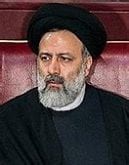axios.com – Iran’s elections in June are not a factor in the Biden administration’s decision-making for how to proceed with nuclear talks, State Department Iran envoy Rob Malley told me in his first interview since taking office.
Why it matters: Iran’s President Hassan Rouhani and Foreign Minister Javad Zarif, who pushed for the 2015 nuclear deal and supported engagement with the U.S., are not running in June’s elections and will finish their term in August. The next Iranian president is likely to be more skeptical of nuclear diplomacy with the U.S.
- “We don’t intend to base the pace of our discussions on the Iranian elections — the pace will be determined by how far we can get consistent with defending U.S. national security interests,” Malley said.
- “In other words, we won’t rush or slow things because of the Iranian elections.”
Driving the news: Malley said the U.S. has made clear to Iran it is ready to engage in a serious diplomatic process to achieve a mutual return to compliance with the nuclear deal.
- “Our view is that direct talks are more effective and less prone to misunderstanding, but for us the substance is more important than the format,” Malley said.
The big picture: The Biden administration will be ready to consider some sanctions relief for Iran only after talks between the parties resume and only as part of a reciprocal process, senior State Department officials tell me.
- “Possible U.S. steps with regard to sanctions can be on the table but we need to get into a conversation with Iran, whether direct or indirect,” a senior State Department official said.
- “The president will not take unilateral steps when it comes to removing sanctions. Any substantial move by the U.S. will have to be part of a process in which both sides take actions.”
The other side: So far, U.S. efforts to re-engage with Iran have met with a cool response from Iranian leaders.
- The Iranians are demanding that the U.S. make the first move, but President Biden isn’t prepared to meet their demands for unilateral sanctions relief before Iran returns to full compliance with the nuclear deal.
- Flashback: The Trump administration made several requests to meet with their Iranian counterparts, but Iran made clear it would not meet until the U.S. provided some sanctions relief.
- “That remains their position” under Biden, a senior State Department official told me.
Behind the scenes: The Biden administration wasn’t surprised by Iran’s tough position, the senior official says.
- The official added that the Iranians were surprised and disappointed that Biden hadn’t moved more quickly to lift sanctions and re-enter the deal.
- Nevertheless, Biden’s position remains the same: the U.S. is prepared to resume full compliance with the deal if Iran does, “and we are ready to engage in meaningful diplomacy to get there,” the official said.
What’s next: Once talks with Iran resume, State Department officials believe one of the sticking points will be the sides’ different interpretations of what it means to get back to full compliance.
- “Those will have to be negotiated. That’s why we expect there could be difficult talks, even as we both agree on the goal, and even as we agree on a roadmap to get there,” the State Department official told me.
Meanwhile, the State Department’s Iran team is slowly taking shape. Malley recruited nuclear weapons and sanctions expert Richard Nephew — a member of the U.S. negotiating team during the talks that led to the 2015 deal — as his deputy.
- Another member of the team is Jarret Blanc, who led the implementation of the deal under Barack Obama. More members are expected to be added.
- Malley told me the internal discussions on the way forward include a range of views. “For every person I speak to who agrees with me I try to speak to another person who does not,” he said.
 Shabtabnews In this dark night, I have lost my way – Arise from a corner, oh you the star of guidance.
Shabtabnews In this dark night, I have lost my way – Arise from a corner, oh you the star of guidance.


